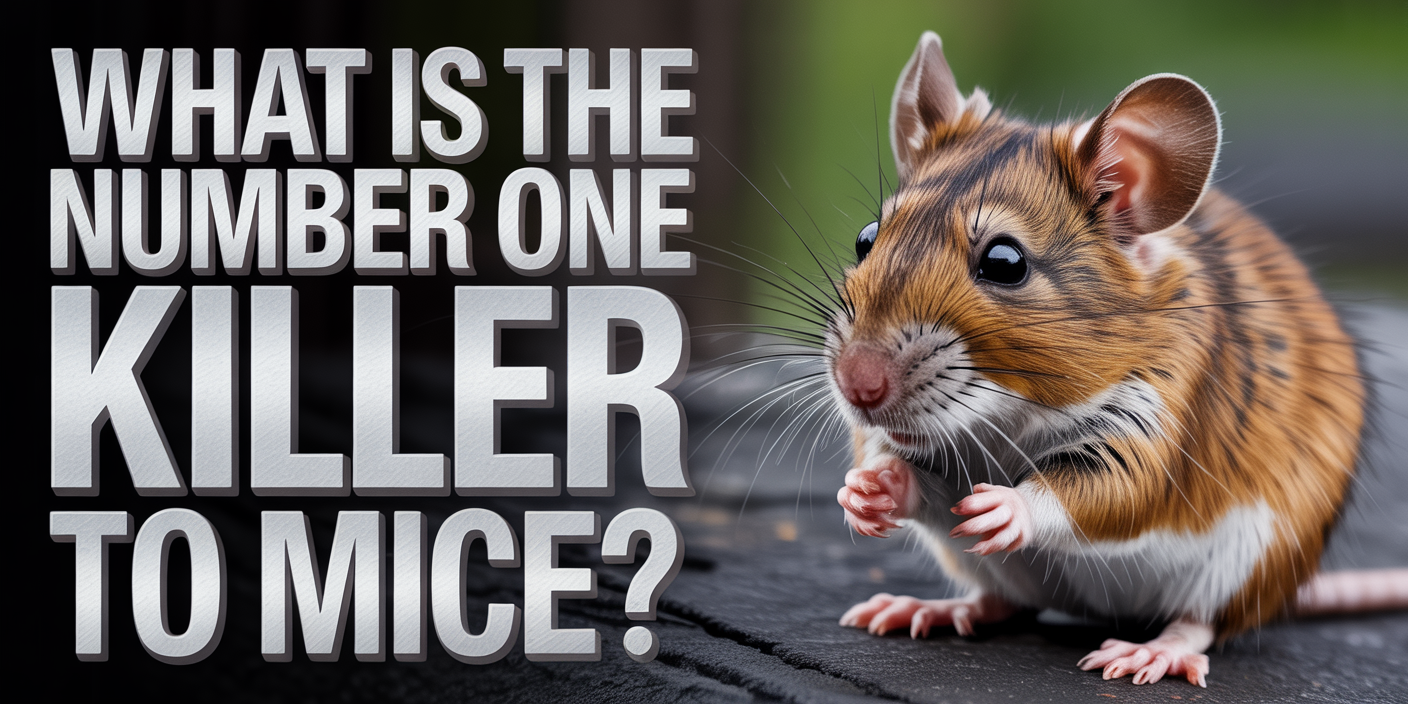The number one killer to mice is rodenticide, a type of poison designed to eliminate them quickly and effectively. These poisons work well but can harm pets, kids, and wildlife if mishandled.
Mice may be small, but they can cause big problems inside homes and businesses. From chewing through wires and insulation to contaminating food supplies, these pests spread disease and create costly damage in a short amount of time.
Because of their rapid breeding and ability to squeeze into tight spaces, many people wonder what method works best to eliminate them. Knowing the number one killer to mice helps homeowners choose the most effective rodent control strategy while staying safe and responsible.
Learn more: What is the most effective rodent control?
What is the Number One Killer to Mice?
The most common and effective killer of mice is rodenticide, a specially formulated poison designed to eliminate them. These products are widely used in both residential and commercial settings because they can quickly reduce mouse populations that would otherwise multiply rapidly.
Rodenticides work silently, allowing mice to consume the bait without suspicion. Once ingested, the poison interferes with their bodily functions, ultimately leading to death. This makes rodenticide the go-to solution for many homeowners dealing with infestations.
How Do Rodenticides Work?
Rodenticides typically fall into two categories: anticoagulants, which cause internal bleeding, and non-anticoagulants, which disrupt the nervous system or other critical processes. Both types are designed to be lethal after ingestion, ensuring that even small amounts can be effective.
Because they are easy to distribute and require little effort beyond placement, these poisons are often considered more efficient than traps. However, their strength also comes with risks, making it important to understand the consequences of their use.
Are Poisons the Safest Way to Kill Mice?
While rodenticides are highly effective at killing mice, they are not always the safest option for households. Pets, children, and even non-target wildlife can accidentally ingest the poison, leading to serious health risks and unintended harm.
There’s also the issue of secondary poisoning, where predators such as owls, hawks, or neighborhood cats consume poisoned mice and become sick themselves. For these reasons, many experts recommend using poisons only as a last resort and under professional supervision.
Alternatives to Poisons for Killing or Controlling Mice
For homeowners who want safer methods, traps are one of the most effective alternatives. Snap traps and electronic traps provide a quick and targeted way to kill mice without leaving toxic residues that could harm pets or wildlife.
These tools also make it easier to confirm when a mouse has been caught, unlike poisons where the animal may die out of sight. Natural solutions can also help keep mouse populations under control.
Owls, snakes, and even household cats serve as natural predators that discourage infestations. Beyond that, preventive measures like sealing entry points, storing food securely, and removing clutter can drastically reduce the chances of mice moving in.
Why Mice Control Is Important?
Mice aren’t just a nuisance, they pose real health risks by spreading diseases such as hantavirus, salmonella, and leptospirosis. Their droppings and urine can contaminate surfaces and food supplies, creating unsafe conditions for families and pets.
On top of health concerns, mice cause significant property damage by chewing through wires, insulation, and even structural materials. Their rapid breeding means a small problem can quickly turn into a large infestation, making fast and effective control essential.
When to Call Professional Help?
If you notice constant scratching noises, droppings in multiple rooms, or chewed wires, it’s a sign the infestation is bigger than DIY methods can handle. Mice breed quickly, and what seems like a few pests can become dozens in just weeks.
At that point, professional intervention is the most reliable way to stop the problem before it escalates further. Wildlife control experts, like AAAC Wildlife Removal, have the tools and training to safely eliminate mice without putting your family or pets at risk.
They not only remove existing rodents but also identify entry points and apply prevention strategies to keep them from coming back. This combination of removal and prevention offers long-term peace of mind.
Final Thoughts on the Number One Killer to Mice
Rodenticides may be the most common method for killing mice, but they aren’t always the safest or most practical solution for every household. Understanding the risks and exploring alternatives like traps, prevention, and professional help can save you from bigger problems down the road.
Effective mouse control is about more than just eliminating pests, it’s about keeping your home healthy and secure. By working with AAAC Wildlife Removal, you can tackle infestations responsibly and ensure long-term protection against future invasions.
Call AAAC Wildlife Removal for Safe Mouse Control
If mice are invading your home, don’t wait until the problem gets out of hand. At AAAC Wildlife Removal, we specialize in safe, effective, and humane mouse control that protects both your family and your property.
Our team goes beyond quick fixes by addressing the root cause of infestations and putting preventive measures in place.




